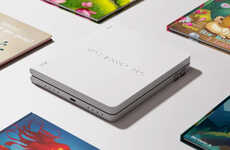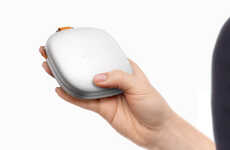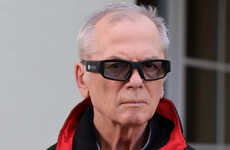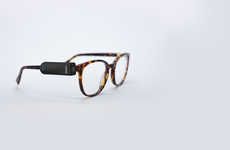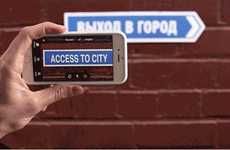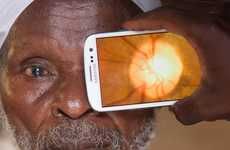
The Eye Ring Converts Words into Braille Dots in Real-Time
Akihiko Tse — October 8, 2013 — Unique
References: jeongyong & yankodesign
In Korea, only about 0.1 per cent of books have Braille written into them, according to designer Yong Jeong, limiting those who are visually impaired the chance to read books. This is what the Eye Ring hopes to change.
The Eye Ring is a braille scanner that fits on like any other ring, but can be worn on the tip of the finger when the wearer wants to read ordinary text. The Eye Ring comes equipped with a scanner at the top of the ring that can be scanned over the text. On the other side, a Braille point pops up according to the words that the scanner picks up and converts them into Braille dots, essentially providing a translation in real time. The ring can be turned on by rotating a dial on the outer edge of the scanner, and has a Bluetooth function that can be connected to a headset, which converts the scanned words into a voice.
The Eye Ring is a braille scanner that fits on like any other ring, but can be worn on the tip of the finger when the wearer wants to read ordinary text. The Eye Ring comes equipped with a scanner at the top of the ring that can be scanned over the text. On the other side, a Braille point pops up according to the words that the scanner picks up and converts them into Braille dots, essentially providing a translation in real time. The ring can be turned on by rotating a dial on the outer edge of the scanner, and has a Bluetooth function that can be connected to a headset, which converts the scanned words into a voice.
Trend Themes
1. Real-time Braille Translation - Developing wearable technology that can translate text into Braille in real-time presents an opportunity for disruptive innovation in accessibility technology.
2. Smart Wearable Scanners - Integrating scanners into smart wearable devices presents an opportunity for disruptive innovation in personal productivity tools.
3. Multimodal Accessibility Devices - Creating multimodal accessibility devices that can convert text into Braille, audio, and visual formats presents an opportunity for disruptive innovation in inclusive technology.
Industry Implications
1. Assistive Technology - The assistive technology industry can benefit from developing efficient, portable, and easy-to-use devices for the visually impaired community.
2. Wearable Technology - The wearable technology industry can explore the integration of scanners and other productivity tools into smart rings, watches, and other wearable devices.
3. Publishing - The publishing industry can benefit from investing in technology that can make literature more accessible to the visually impaired community.
4.7
Score
Popularity
Activity
Freshness


